DOGMA [dawg-muh, dog-] (noun): prescribed doctrine proclaimed as unquestionably true by a particular group.
RADICAL [rad-i-kuh l] (adjective): thoroughgoing or extreme, especially as regards change from accepted or traditional forms
To be radical, one must question accepted or traditional forms and must, at times, be extreme in fighting anything proclaimed as unquestionably true. This rings true in today’s nutrition communities more than ever. We’re constantly inundated with the latest diet dogma offering up THE way to change our lives, offer a quick fix, or somehow make us better than everyone else. But guess what… That “healthy” diet might actually be doing the exact opposite. This post will put to rest the notion that a food or way of eating can define us. We’ll dive into the ways that dogmatic mindsets regarding nutrition can actually be harmful to health. Here are 5 reasons why your diet might actually be ruining your health…
1) Stress
Adhering to any sort of diet to the point where it becomes a major stressor can cause some serious damage to your health. You know why? Because stress sucks. Literally. It sucks the life out of us. Excessive stress impacts the health of the digestive system and can cause ulcers, indigestion, and gut microbiome imbalances. When repeated adrenaline is released during chronic stress responses, your hormonal system takes the brunt of it, straining the circulatory system, elevating cortisol, and wreaking havoc on the immune system. Not only can this cause longterm damage, but it can actually cause you to gain wait, making whatever diet dogma that got you to this situation entirely pointless. I’ve worked with clients who were literally dieting themselves into poor health. Once we let go of diet dogma, the food we eat can actually nourish us – mind, body, and soul.
2) Relationships
 While stress sucks, relationships don’t. A 2010 meta-analysis of 148 different research studies found that “people with stronger social relationships had a 50 percent increased likelihood of survival than those with weaker social relationships.” And falling into the depths of any diet dogma is a surefire way to lose friends. No one wants to feel judged, especially for something as simple and as social as eating. Oftentimes, folks get so caught up in diets or food choices that they become consumed by what they eat, and soon, they start to notice more and more of what others eat too. Ever heard that Zac Galifianakis joke: “If a vegan does CrossFit, what do they talk about first?”… don’t be that guy. Your friends love you for you. And if you are taking steps to improve your life by eating better and being more intentional with your food choices, they will support you. BUT when food becomes all you talk about and/or when you start to comment on their choices in a judging way, get ready to lose friends. Eating is one of the most enjoyable things to do with friends, but if dogma joins the table, say goodbye to fun (and eventually invitations too). What “healthy” life is worth bragging about when you don’t have friends to enjoy on the ride?
While stress sucks, relationships don’t. A 2010 meta-analysis of 148 different research studies found that “people with stronger social relationships had a 50 percent increased likelihood of survival than those with weaker social relationships.” And falling into the depths of any diet dogma is a surefire way to lose friends. No one wants to feel judged, especially for something as simple and as social as eating. Oftentimes, folks get so caught up in diets or food choices that they become consumed by what they eat, and soon, they start to notice more and more of what others eat too. Ever heard that Zac Galifianakis joke: “If a vegan does CrossFit, what do they talk about first?”… don’t be that guy. Your friends love you for you. And if you are taking steps to improve your life by eating better and being more intentional with your food choices, they will support you. BUT when food becomes all you talk about and/or when you start to comment on their choices in a judging way, get ready to lose friends. Eating is one of the most enjoyable things to do with friends, but if dogma joins the table, say goodbye to fun (and eventually invitations too). What “healthy” life is worth bragging about when you don’t have friends to enjoy on the ride?
3) Micronutrient Variance
Micronutrients are chemical elements or substances required in trace amounts for the normal growth and development of living organisms. We can’t see them, but they are necessary for health and wellbeing.
Many fad diets help people lose weight by restricting certain foods, limiting choices, and leaving folks sticking to the same handful of food items day in and day out, oftentimes fake foods, supplements, or products. And while I have no problem with people finding foods they like, food prepping, and thinking about what they eat, I do have a problem with diet dogmas that limit essential micronutrient variance. Many such fad diets contain insufficient amounts of vitamins and minerals due to lack of variation and/or the consumption (read: marketing gimmicks) of predominantly processed fake foods like energy bars, shakes, and the like. Some diets restrict food items like animal products. Others restrict followers to eating raw only. Some others leave out nourishing carbohydrates like fruit and starchy vegetables. In each case, there is something missing: important micronutrients that keep our functions running at optimal levels. Missing out on essential micronutrients can not only cause longterm health damage, it can also actually cause more hunger and cravings as your body requests what it needs leading to binges and ultimately diet “failure”. Any diet that limits the goodness of micronutrients should be put to rest and so should the dogma that comes with it.
4) Macronutrient Balance
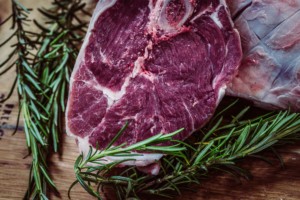 Through college, I thought bananas were life, that all animal protein would kill me someday, and that vegetarianism was the holy grail of health. Fast forward 3 years, and I had lost my period, was losing weight rapidly, couldn’t recover from training, and seemed to be constantly sick.
Through college, I thought bananas were life, that all animal protein would kill me someday, and that vegetarianism was the holy grail of health. Fast forward 3 years, and I had lost my period, was losing weight rapidly, couldn’t recover from training, and seemed to be constantly sick.
Upon finding “paleo” (or what I saw it as) and transitioning my diet, suddenly bananas were bad news and carbs were the enemy. I upped the fat and protein thinking my troubles would go away and all would be right in the world. And lots was, at first. Years passed, though, and my period didn’t return. My high stress career took a huge toll. I was constantly hurting. And my training completely plateaued.
So what was the deal? Well, my insisting on cutting down or out all together one major macronutrient group, first protein and then carbs, left gaping holes in my nutrition. What I thought was strict pursuit of health, ended up being diet dogma that left me confused, frustrated, and stuck. Each of the 3 macronutrient groups – Protein, Carbohydrate, and Fat – are necessary for health and fitness (at least for the majority). PROTEIN is needed for cell repair and growth, basically the building blocks of life, and when I cut them out in college, my body took note and reacted accordingly. My training, mood, and system all seriously suffered and so did I. (here and here are some of my favorite quick sources of protein on the go). CARBOHYDRATE (glucose) is essential for our bodies to function. It supplies energy to the brain, makes up molecules called glycoproteins, and supports immune function. Plus, for those of us training, adventuring, and moving as we should be, refueling those stores is extra important. While our bodies can produce their own, this adds an additional stress on the system that can negatively impact hormones, recovery, and adrenals. In my case, my adrenals pretty much shut down on me, leading to chronic pain, continued amenorrhea, and big time training plateaus. Now, last but certainly not least: FAT is a beautiful thing, and while I never went super low fat, I did cut out animal fats in my early diet dogma years, and this also took a major toll. Despite the decades of fat phobia in our society, the reality is that fats are oh so phat. You’ve probably heard of the term “fat-soluble vitamins” like A, D, E, and K. Well, the name says it all as we need healthy stable (saturated) fats and cholesterol to utilize these vitamins. Our bodies need cholesterol to function, to thrive, and to survive, even. There is a reason why delicious foods like grass-fed beef, pasture-raised pork (bacon!), eggs, butter/ghee, etc. contain these healthy fats. More on the fat debate in this post. So listen to your body, find balance, and eat up.
5) Quality of Life
We all want to enjoy life. That’s the point of all this right? Why subscribe to any diet dogma unless for some reason you think that it will somehow improve your quality of life? That’s why we do almost everything: to feel good. But sometimes, as I’ve explained in the previous 4 points, that thought process can get terribly skewed, and the diet we started as the answer to making life better becomes the number one reason why it doesn’t. Thinking about food 24/7 is exhausting, consuming, and ultimately damaging to overall quality of life. At the heart of it all, we have to ask ourselves “why?”. Why do I want to eat a certain way: is it for an aesthetic, a fitness goal, to be happier, so others will love you, so you’ll love yourself? Eating eliminating certain foods or eating a specific way to reach a performance goal or even an aesthetic goal is fine of course to a point. In fact, it can be really beneficial to weigh and measure and track what goes in for periods of time to learn more about what our system needs. And elimination diets can be really healing and telling. BUT when that way of eating becomes dogmatic to the point where it rules your life, ruins relationships, destroys your health, or prevents you from loving yourself or seeing the real underlying issues, then we have a problem. We eat to fuel our bodies. We eat for pleasure. We eat to live. BUT no diet defines us. No food or way of eating makes us better or worse than anyone else. No food heals internal struggle or emotional baggage. That has to come from somewhere else: from choices that go beyond the plate.
I am not saying that we should throw in the towel, eat whatever we want all the time, and forgo healthy eating for a care free life. Eating crap day in and day out can cause just as much (or more) damage. What I am saying is that we can’t let nutrition rule the day (or the life) so much that it become detrimental to our health. Our food doesn’t define us. Making healthy choices, eating real food, being intentional about what we eat, and fueling our systems and our souls – that all brings health. Judging ourselves or others based on diet does not. So next time you eat something or see someone eating something (or not eating something), hold off on the judgement. Move on with your day. Laugh it off. And remember what matters.
My advice? Eat real foods. Know where they come from. Balance your plate. Move daily. And do all of this often as possible. If you skip a beat, It’s. O. K. Learn what works best for you, and roll with it. Most importantly, make a choice to be happy. Make a choice to define yourself by your daily actions not diet dogma. Live rad. Love others. Love yourself.
Want to learn more or develop a plan that will avoid dogma and set you up for a lifetime of better habits and a better understanding of nutrition as a whole? I’m here to help! Fill out this form to work with me 1-on-1 or to have me come and present to your group or company. Live rad, my friends!
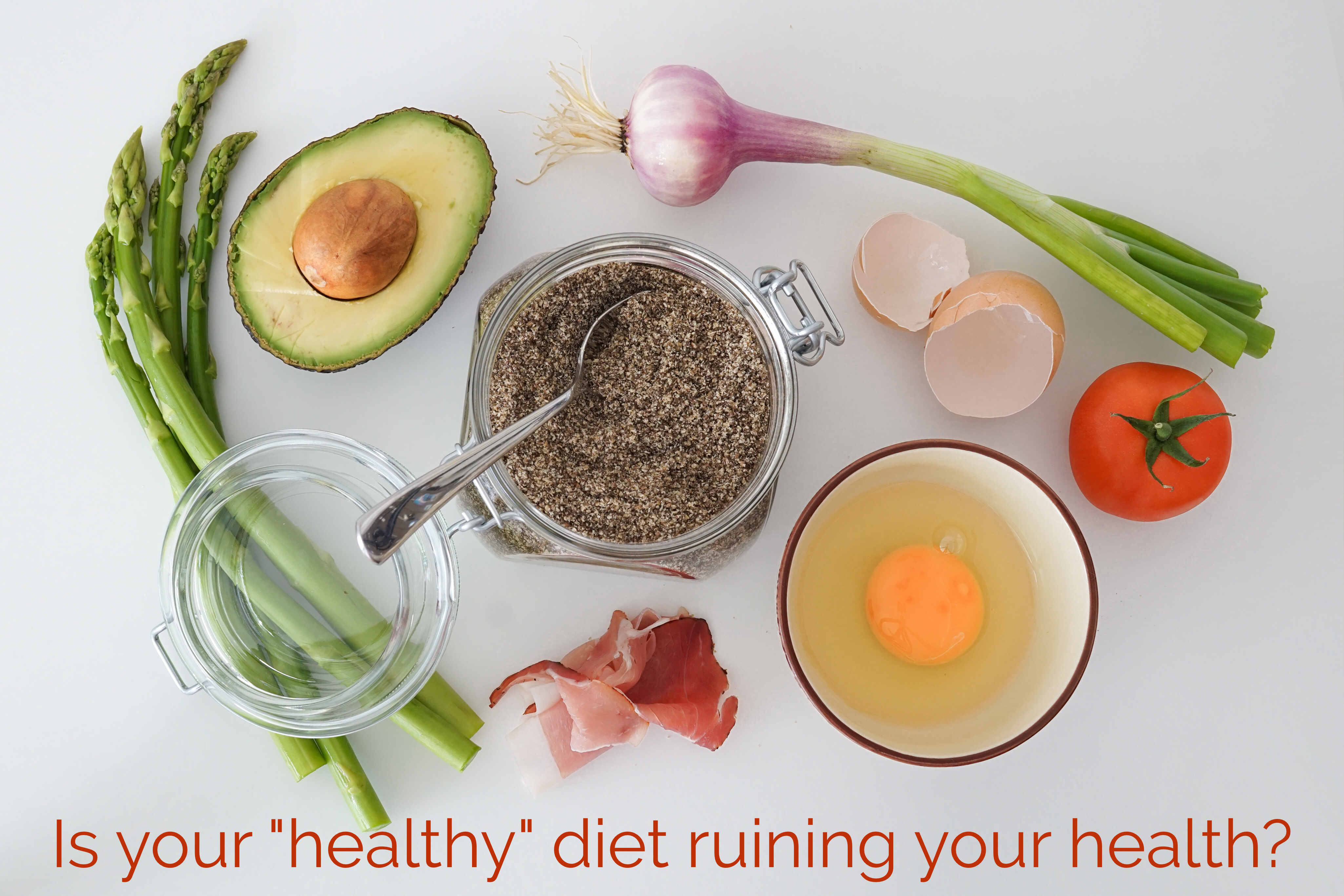


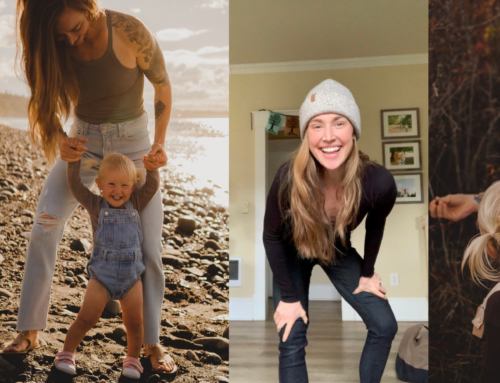
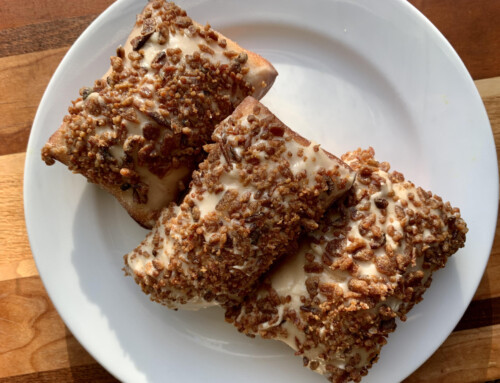
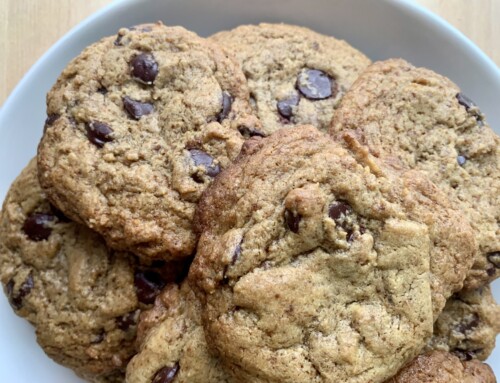
Oh man Laura this is just for me. Thank you so much for writing it! I went AIP/paleo over a year ago and have struggled with it defining me, ruining relationships bc I won’t go to dinners, definitely judging others food choices, etc. It is such a learning process! I think I’m getting more comfortable with not labeling my “way of eating” and giving myself some grace but that alone can cause anxiety bc I don’t want to be TOO lax and allow things in that ultimately will hurt me you know? I try to just focus on eating real food and not the fact that I’m eating 6 pieces of fatty bacon and a ton of sweet potatoes (gasp! All the sugar!) *sigh* Such a journey. But I’m trying!
Hi Lindsi! Thank you for reading and for sharing your experience. It means so much to me to know that you can relate and that you were able to take something from my post. This one hits close to home for me because I have so been where you are. I pushed my family away and some friends too. I think it’s so important to disconnect our identities from the foods we eat. We are each SO much more than that. Food fuels us, but it doesn’t make us who we are. It’s also important for us to understand that everyone is so different when it comes to what foods make them feel good or what their history is with diet. For some, even the idea of restricting can be triggering for eating disorders. Others have no issues at all and don’t even think of food much unless they’re hungry. In another case, some people fuel really well off of fats, while others need more carbs. In any case, the best things we can do is figure out what works for us, let ourselves off the “hook” when we have a food that might not make us feel great. And try not to stress about it all. What even defines “TOO lax”, ya know? I think if you feel good, then treats now and again are great. I also think it’s important to look back and remember why you started eating this way in the first place. Were you feeling crappy? Did you need more structure? What made you decide on AIP? Aaaand AIP is designed to heal the gut/body and eventually to allow you add things in. So adding foods in again is a huge victory not a failure 🙂 Feel free to reach out anytime. I am happy to support and talk it out. I’ve learned so much through my own journey. ♡ hugs. L
Hi Laura, please tell Rusty I wish him a quick and strong recovery. I want to share with you that today I tried a smoothie at a street market in Mexico, made of 1 can of tuna, various fresh fruits (pineapple, papaya, mango, others), a bit of orange juice, and a touch of honey. I was hesitant to try this combination of ingredients, but it actually tasted good. I’d like to know what your thoughts are about the nutritional value of this. Thanks and miss you guys at the HGST gym!
Hello! Rusty says thank you very much! He’s healing well and staying positive. I love that you tried that smoothie. It’a pretty awesome balance of macronutrients, actually. The tuna provides protein and some fat, and the fruits and honey provide carbohydrate. I would suggest leaving the honey out next time, as the fruit alone (especially fruits like mango, papaya, and pineapple) have a lot of sugar on their own. We’ll be in town in a couple months and will certainly stop by the gym! Enjoy your time in Mexico!